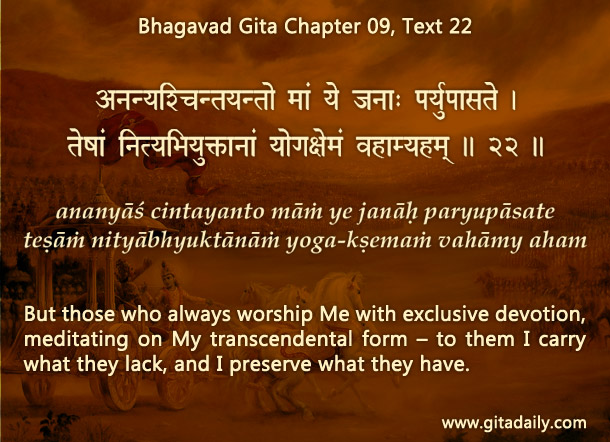When faced with financial challenges, we often worry, “What do I live with?” This worry is, no doubt, valid and important. At the same time, such situations are also invaluable impetuses for asking a more fundamental question: “What do I live for?”
The eleventh canto of the Srimad Bhagavatam describes the story of such a priority reformation, wherein a wealthy super-miser lost everything due to a series of disasters. While trying to make sense of the loss of the ultimate means for living, he discovered the ultimate purpose for living: developing an eternal relationship with Krishna. Being enriched with this sense of purpose, he cast away the feeling of being impoverished and went on to attain life’s ultimate success.
To experience similar enrichment, we don’t have to go through such traumatic experiences; we just need to study scripture sincerely and apply it diligently.
The Bhagavad-gita (09.22) offers a resounding assurance: when we take care of the whys of life, Krishna takes care of the hows of life. This verse’s first part talks about fixing the mind on Krishna undeviatingly and worshiping him wholeheartedly, or in other words, living to love him. That is the why of life. The verse’s second part promises that Krishna takes care of all our necessities: he protects what we have and provides what we lack. That is the how of life.
Additionally, the Gita’s penetrating philosophical analysis enables us to see how obsession with money doesn’t bring happiness; rather, it causes distraction spiritually and agitation materially. On the other hand, focus on Krishna brings profound fulfillment spiritually, and balanced endeavor and sustainable success materially.
These comparative realizations inspire us to replace money with Krishna on the altar of our heart. Thus, material impoverishment gives way to spiritual enrichment.


Leave A Comment